When Russia invaded Ukraine more than a year ago, like so many people watching the tragedy from afar, Taggart Wilson felt utterly helpless.
“When the war started I was spending days online, basically crying, wishing there was something I could do to help,” Wilson said.
Wilson, who grew up in Jasper but who now lives just north of Tete Jaune, B.C., where he operates a farm with his partner, Swantje Pleister, has family connections to Ukraine. He’s a political science major, and has for years been watching with concern as liberal democracies around the world teeter on the brink of authoritarianism.
“I hate fascism, and Ukraine should be a beacon of light for a new era of liberal democracy we so need,” he said.
So in 2014 when Russia invaded, and subsequently annexed, the Crimean Peninsula, in Ukraine’s eastern territory, Wilson was, to say the least, disillusioned.

“I was frustrated the world was turning its back on Ukraine,” he said.
Then, on February 24 of last year, that frustration turned into outrage. When news of Russia’s full-scale invasion of Ukraine broke, the 44-year-old said he had an emotional response.
“After the invasion I instantly felt the need to do something,” he said.
Wilson was following Ukraine’s heart-wrenching saga through various journalists on social media, trying to do what he could to stand in solidarity with the people of Ukraine. He and Pleister took in a pair of refugees fleeing from the conflict, but he still felt a strong urge to be more involved. He considered signing up with the International Legion of Territorial Defence of Ukraine, but was talked out of the idea by a solider friend.
“I’m glad I didn’t,” he reflected.
Months passed. Then one day, while doomscrolling Twitter for news on the war, Wilson stumbled upon the profile of a British volunteer doing work in Lviv. Wilson learned that Richard Woodruff’s Front Line Kitchen was amplifying the work of Lviv Volunteer Kitchen, founded by two Ukrainian women, Oksana Mazar and Lyuda Kuvayskova, and helping prepare dehydrated meals for Ukrainian troops fighting against the Russians. Wilson sent Woodruff an inquiry, to which he received an instant reply that included a digital pamphlet on how to get involved, should he want to travel to Ukraine.
That was all he needed.
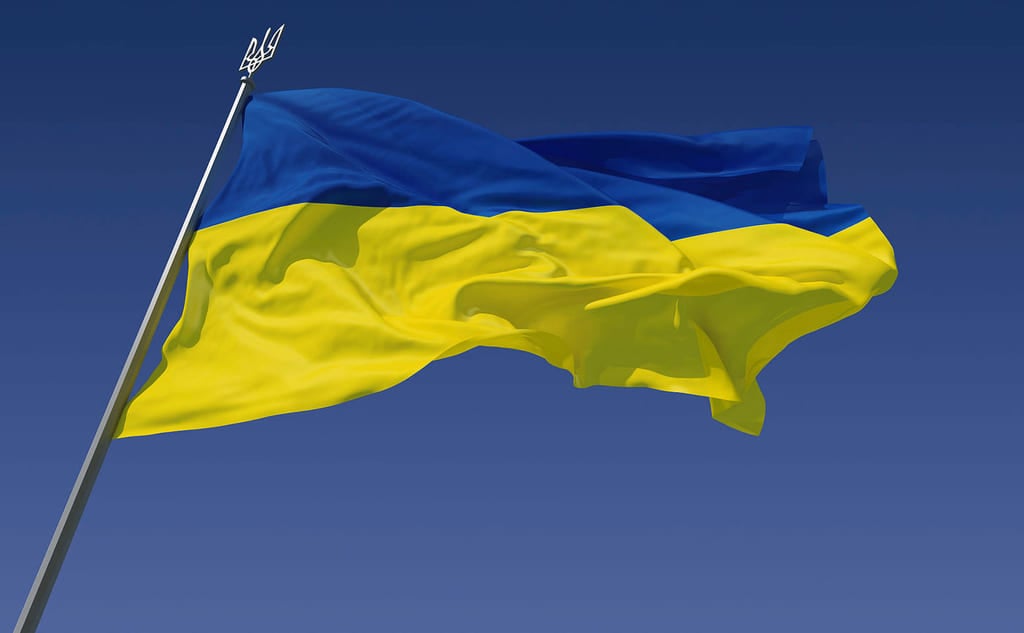
“It had been in the back of my mind for a long time to come here,” Wilson said from an apartment in Lviv on March 10.
Front Line Kitchen had given him a path to act on that inclination. On February 26—almost one year to the day since the first Russian shells were fired—Wilson boarded a plane destined for Warsaw, Poland. But after landing, and after finding his bus to take him across the Ukrainian border, Wilson said he started getting second thoughts. As the Ukrainian countryside rolled by his window, he had mixed feelings.
“Seeing the landscape was profound, but I had nerves,” he said.
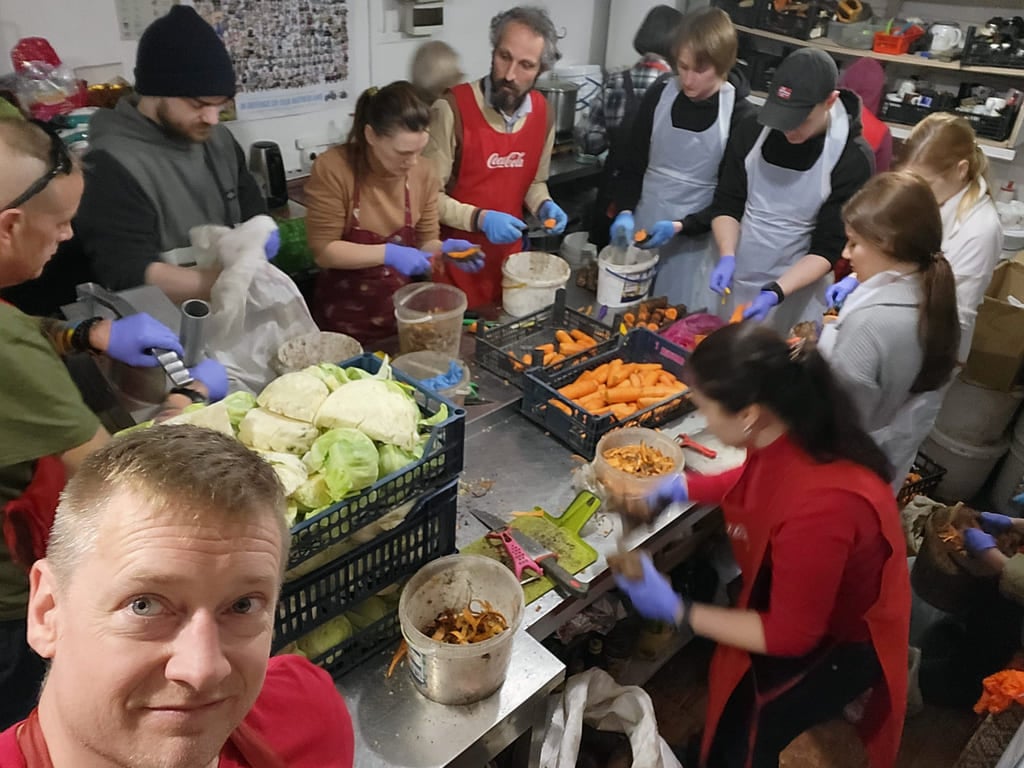
Those anxious feelings didn’t exactly dissipate when, on his first morning in Lviv, he heard the sounds of air raid sirens ringing across the downtown square.
“That’s when I thought ‘what have I got myself into?’” he said.
However, as he made his way to the small workspace from which Front Line Kitchen has, since 2014, pumped out more than ten million dehydrated, packable meals for soldiers, Wilson’s doubts began to fade away. Moreover, after he met some of the folks volunteering with the organization—people from Ireland, Uruguay, Greece, the U.S., Germany, Austria and France—and getting a briefing of how he was going to contribute to the cause, his mindset completely changed.
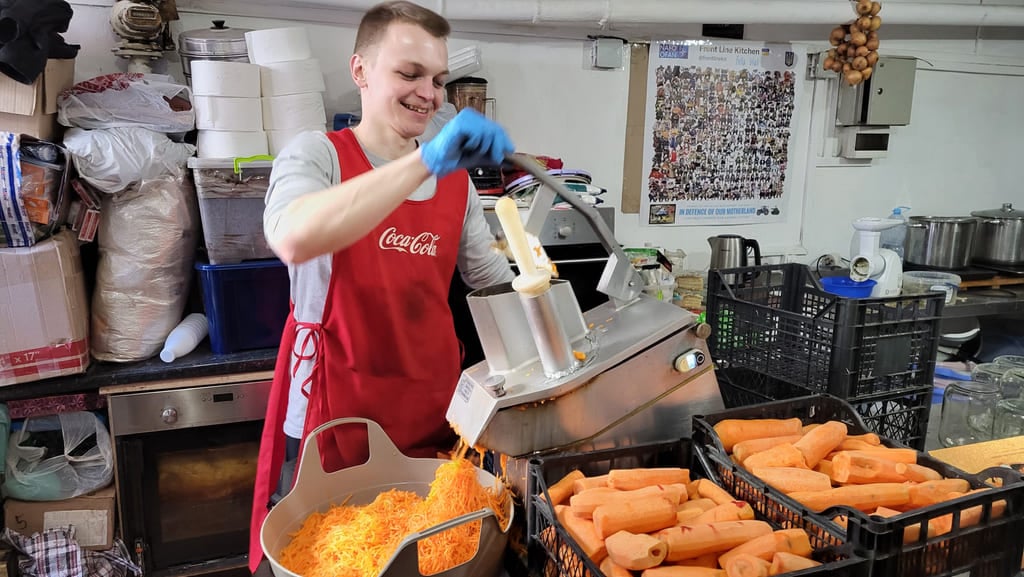
“After putting in a solid day’s work, knowing we were feeding soldiers, I was absolutely sure this is where I wanted to be right now,” he said.
Weeks later, that assuredness has stayed with him, even with the knowledge that all over Lviv, buildings are fortified with sandbags, armed soldiers walk the streets and Russian missiles have destroyed buildings only 60 km from the apartment he’s staying in. A large part of the feeling of hopefulness, he said, is talking to and learning from the people who have the most at stake: Ukrainians.
“There are a multitude of reasons to be hopeful, not least of which is the resilience of the Ukrainians around me,” Wilson said.
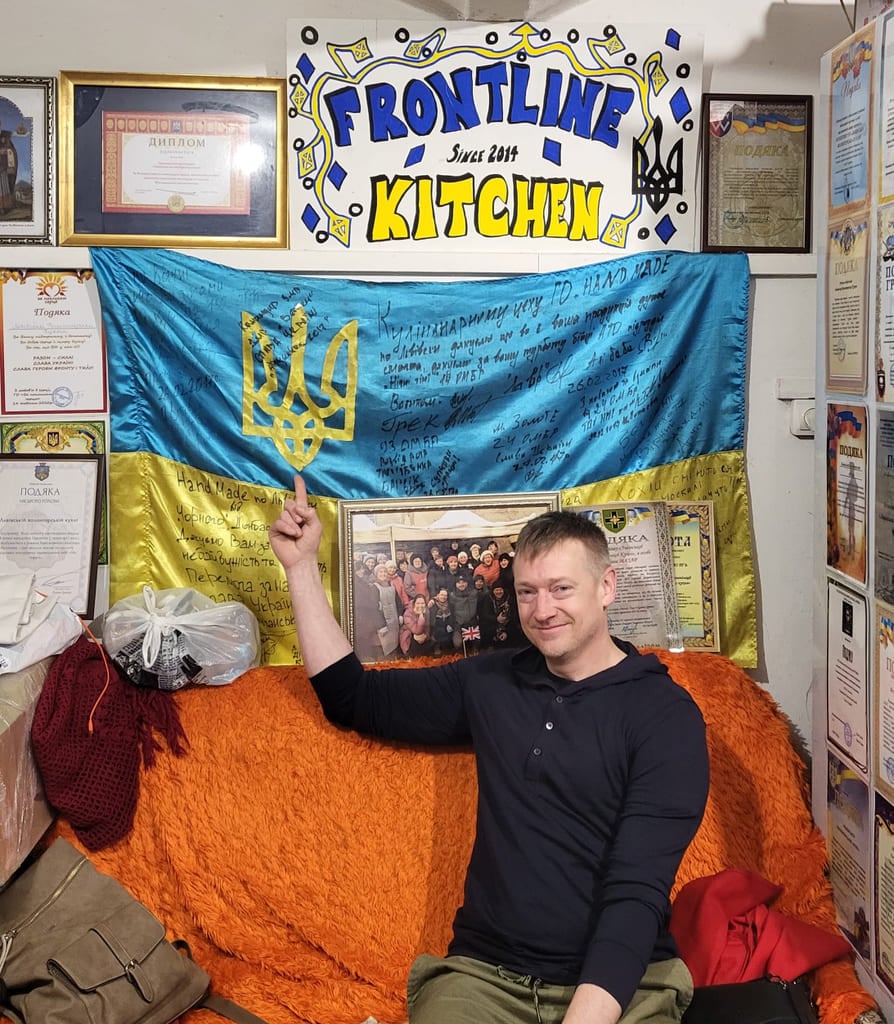
And their gratitude. Wilson said he’s been bowled over by the intense appreciation Lviv residents have shown the foreign volunteers. At a time in his life when he’s been searching for meaning and as he has sought out ways to connect with the country where his Ukrainian grandmother (Baba) was raised, those engagements have been extremely powerful.
“I haven’t laughed and cried and smiled as much in the last 10 years as I have in the last two weeks here,” Wilson said.
And it’s not just the onions—although Front Line Kitchen does cut a lot of them. While he might only be peeling vegetables and portioning food, Wilson said in the context of the war effort, the mundane duties he’s tasked with at Front Line Kitchen take on much more meaning.
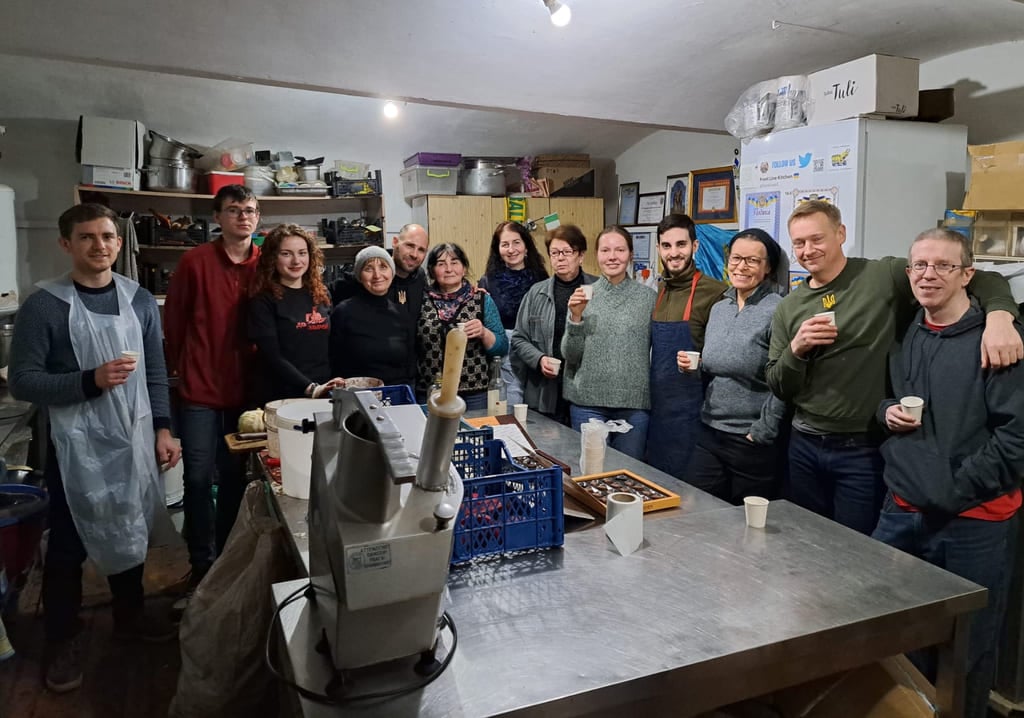
“I’ve always had this sense of wanting to be part of ensuring social justice and liberty for people, but I never thought it would look like this,” he said.
“It doesn’t feel mundane at all. It feels powerful.”
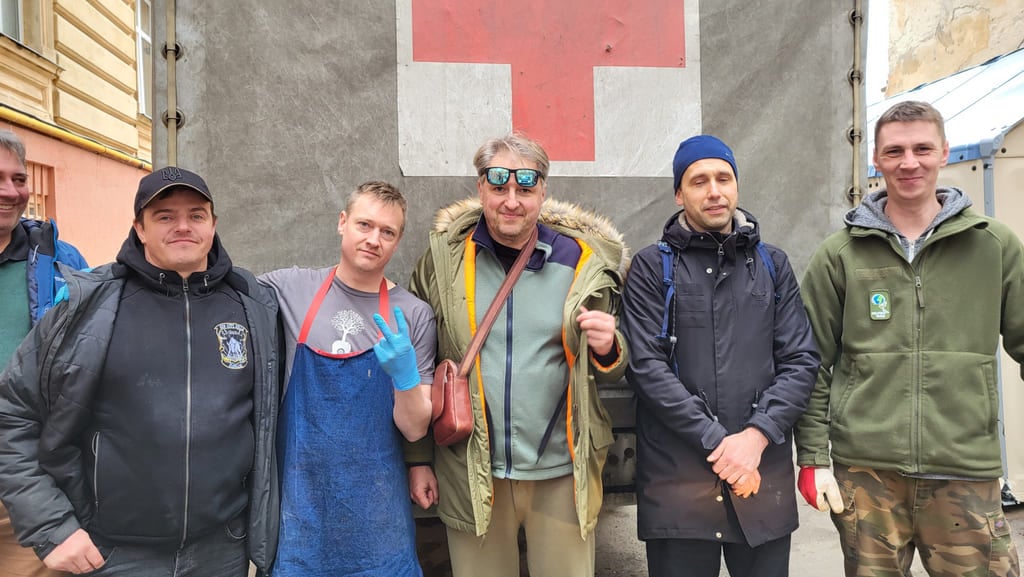
Bob Covey // bob@thejasperlocal.com


